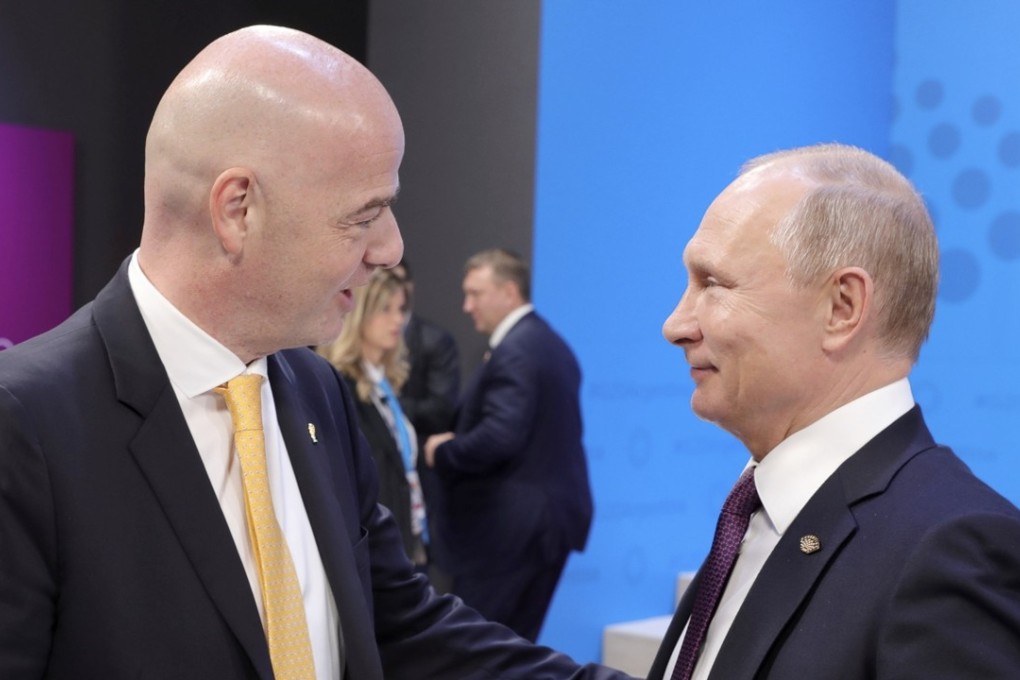Beyond Gianni’s geopolitics: the Fifa president is not alone in changing the nature of sports and politics
- The Swiss is the first Fifa president to speak at the G20 summit for top world leaders
- He says football can be used as an agent of change and benefit the world

Ahead of the recent G20 meeting in Argentina, I decided to re-read my copy of Tim Marshall’s bestselling book Prisoners of Geography, which examines how political decision-making is either constrained by or enabled by geographic factors.
The essence of Marshall’s arguments is that geopolitics has re-emerged as an important factor in determining the well-being of individual nations and, indeed, the world as a whole. Other commentators extend this notion of geopolitics, linking it to relations between countries and to systems of governance.
As such, geopolitics increasingly dictates all manner of policy decisions, ranging from the procurement of natural resources and the management of energy supplies, through to the development of industrial strategies and the promotion of human capital development.
In this sense, effective geopolitics is commensurate with safety, security, stability, well-being and prosperity.
Upon reflection, therefore, it should have been no surprise to see Gianni Infantino become the first-ever Fifa president to address the world’s most powerful geopolitical talking shop, the G20. During an appearance that took many people aback, Infantino spoke to the assembled political leaders about football’s power to change the world.
For many involved in the world’s favourite game, this line of argument is a well-rehearsed one. Football has often been advocated as a means to promote social cohesion, improve public health and foster national identity. However, Infantino now seems intent on accentuating its importance as a geopolitical tool, a form of diplomacy and a way of building international relations.